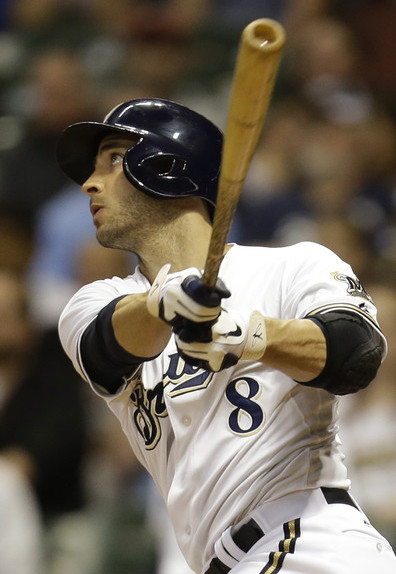
A while back, I wrote a post cynically entitled “MLB players should consider cheating.” The basic premise of the article was simple: the financial incentive for many players to cheat often outweighs the incentive not to (i.e. repercussions such as suspensions or tainted reputations). I used Melky Cabrera as my primary example. He basically went from being a fringy fourth outfielder on the verge of losing an MLB job to a guy who enjoyed a two-year, $16M contract after being suspended for substance abuse and despite obvious performance concerns. Moral relativism aside, I argued Melky is better off now financially than he may have ever been before had he not cheated — a point that I still stand behind.
Given all the hoopla surrounding the Biogenesis scandal, I thought this might be a convenient opportunity to revisit the subject. Has the league taken the appropriate actions for deterring banned substances? For starters, some prominent athletes like Ryan Braun are facing lengthy suspensions (65 games in Braun’s case, which is resulting in $3.25M in lost wages for the rest of the 2013 season). Jhonny Peralta and Nelson Cruz will likely follow with similar penalties of their own along with several other notable players, though it does appear that the players will have some flexibility in the plea bargain in terms of timing, which certainly helps their wallets.
Then, of course, there’s Alex Rodriguez, who will probably face a massive suspension given the abundance of evidence apparently piled against him. Mike touched on this earlier — specifically discussing whether there’s an ideal time for A-Rod to accept his suspension. As an aside, this would also represent the first time the MLBPA has shown limited interest in defending one of its players on this particular matter, and players seem as vocal as ever about having the game cleaned up. Are a few high-profile suspensions enough to stop the majority of players from entertaining the idea of banned substances moving forward though?
Honestly, I’m not sure. I mean, we’re still talking about suspensions as the primary consequence at the end of the day. The “three-strike” rule (50 games for the first offense, 100 for the next, and a lifetime ban for the third) seems to generally still be the preferred avenue of Major League Baseball as a response. The problem with this mode of punishment though, at least as I see it, is that it doesn’t quite solve the issue. Players such as Melky can still take banned substances long enough to possibly earn a big payday without fear of much more than a 50-game suspension if it’s the first offense. Meanwhile, their respective teams are left out to dry once the penalty is issued. Unless the league makes these suspensions radically more severe (such as an immediate lifetime ban regardless of the substance or the circumstance), I just don’t see it this form of cheating ending as neatly as Selig might hope.
What if the repercussions worked a little differently though? For example, imagine if the team had the right to void a player’s contract altogether if they were caught taking PEDs? In the case of the Yankees and A-Rod, this would allow them to redirect a lot of dollars to other parts of the team that would otherwise be allocated to one player. I would have to think that a voided contract would certainly make players think twice about PEDs, though this might also be too extreme for the MLBPA’s liking.
Or, perhaps you could go another direction. Maybe a player who faces a suspension is automatically forced to accept a league minimum paycheck afterward for a couple seasons. If that player is part of some mega-contract already (like A-Rod) and the team chooses not to void the deal, the player would have to accept a few seasons at a discount. This allows the team to keep a player if they choose too, but also have a bit of a security blanket in case he doesn’t perform quite the same afterward. More importantly, the player won’t have the option of cashing in immediately upon return. Basically, he’ll have to prove himself all over again for a season or two prior to getting a big pay day. On the other hand, a player’s career won’t necessarily be over after one mistake thanks to an immediate lifetime ban.
Frankly, I don’t know if either of those options are feasible or even if they’re appropriate suggestions. I think the point here is that a different approach could potentially prove more effective if the league’s expectation is to have a clean game. I don’t think there’s a professional player on the planet who isn’t very conscious about his salary, and if the economic incentives of the game blatantly favor honest play, maybe the vast majority of players might consider it. At least, that’s the theory.
Leave a Reply
You must be logged in to post a comment.